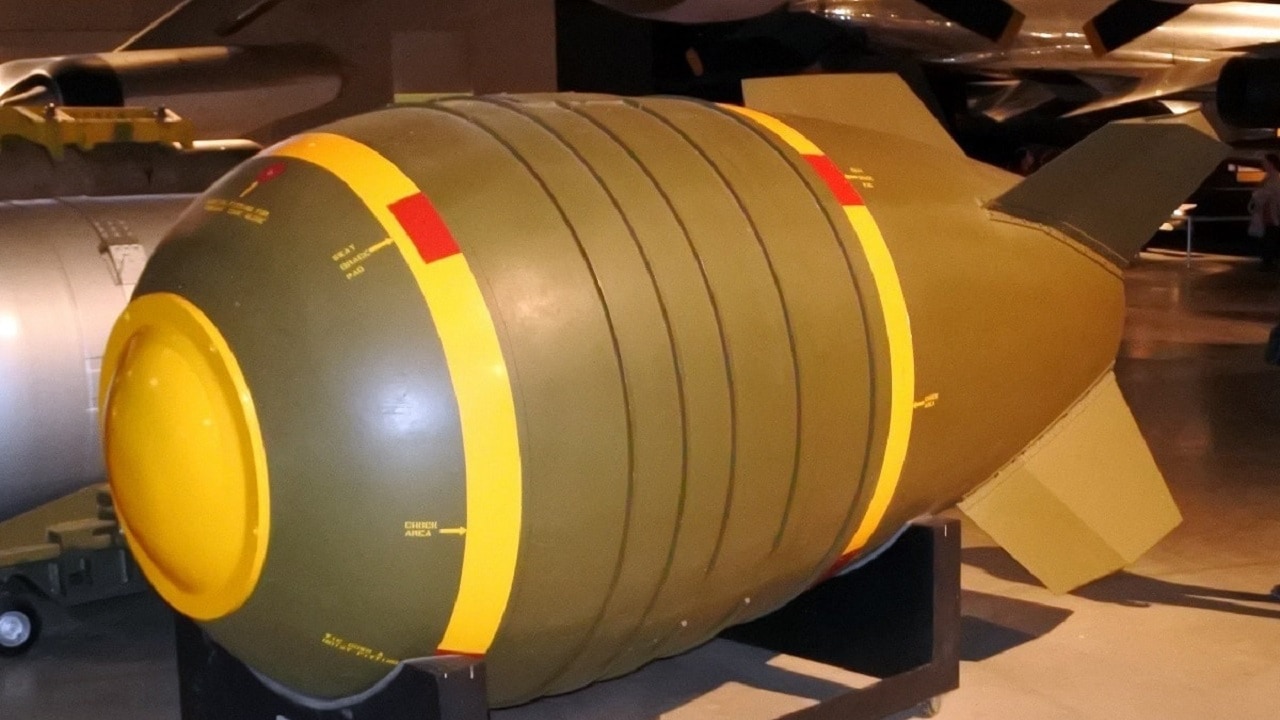How many nuclear weapons does Russia have, and would Putin dare use them over Ukraine? On Wednesday morning, Russian President Vladimir Putin addressed the Russian people for the first time since the beginning of the Ukraine invasion in February. The Russian president accused the West of plotting to “destroy” his country and declared a partial “military mobilization” in Ukraine that would see members of his military’s reserves called to serve in the war.
While the escalation of the conflict was expected by most analysts when reports revealed that the Russian president was planning to make a national address, his references to nuclear weapons and threats to use them in combat came as a surprise to some but isn’t the first time he has done this.
Putin said that his country would not give in to “nuclear blackmail” from Ukraine and NATO allies, adding that he has “lots of weapons to reply”. The Russian president also insisted that he was “not bluffing” about using the weapons to protect his nation.
But how many nuclear weapons does Putin have, and would he use them?
According to an estimate by Statista, Russia has an arsenal of 5,997 nuclear warheads as of January this year. A fact sheet from the Arms Control Association, however, claims that Russia has 6,257. Either way, that’s more than the United States’ arsenal of 5,550 nuclear warheads.
The two global powers own the lion’s share of the world’s nuclear warheads, and while Russia technically has more, the difference in number doesn’t mean much given the amount of damage that can be done by just a single warhead.
Will Putin Do It?
The Kremlin’s message about the use of nuclear weapons has been inconsistent throughout the war, but that doesn’t mean it couldn’t happen. Russian officials have repeatedly hinted at the possibility of a nuclear conflict, though when pressed, other Kremlin officials have sought to distance themselves from those claims.
That being said, President Putin ordered his military to put his nation’s deterrence forces, including nuclear arms, on high alert. Putin blamed aggression from NATO leaders at the time, as well as the introduction of economic sanctions against the country.
“As you can see, not only do Western countries take unfriendly measures against our country in the economic dimension – I mean the illegal sanctions that everyone knows about very well – but also the top officials of leading NATO countries allow themselves to make aggressive statements with regards to our country,” the Russian president said on national television.
Senior NATO and U.S. officials also warned last week that Russia could be on the verge of using nuclear weapons following setbacks caused by Ukraine’s counter-offensive that took back control of Kharkiv and large sections of south-eastern Ukraine.

Russian Air Force Tu-22M3M. Image Credit: Creative Commons.
Of course, the Russian president also insisted that his comments about the use of nuclear weapons were “not a bluff” during his televised address on Wednesday morning – meaning that for all intents and purposes, Russia has nuclear weapons and is ready to use them.
Jack Buckby is a British author, counter-extremism researcher, and journalist based in New York. Reporting on the U.K., Europe, and the U.S., he works to analyze and understand left-wing and right-wing radicalization, and reports on Western governments’ approaches to the pressing issues of today. His books and research papers explore these themes and propose pragmatic solutions to our increasingly polarized society.

